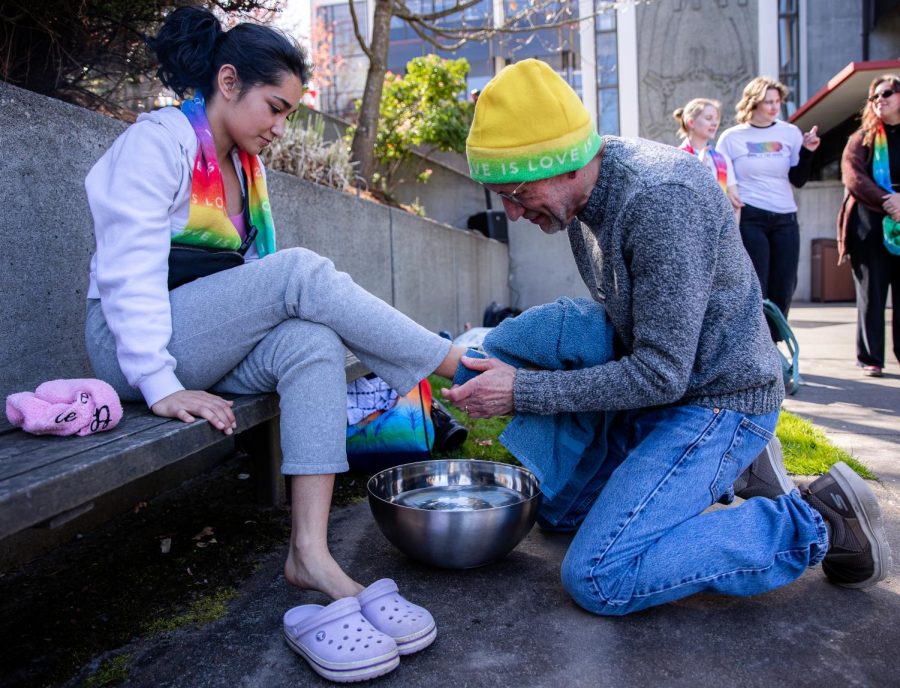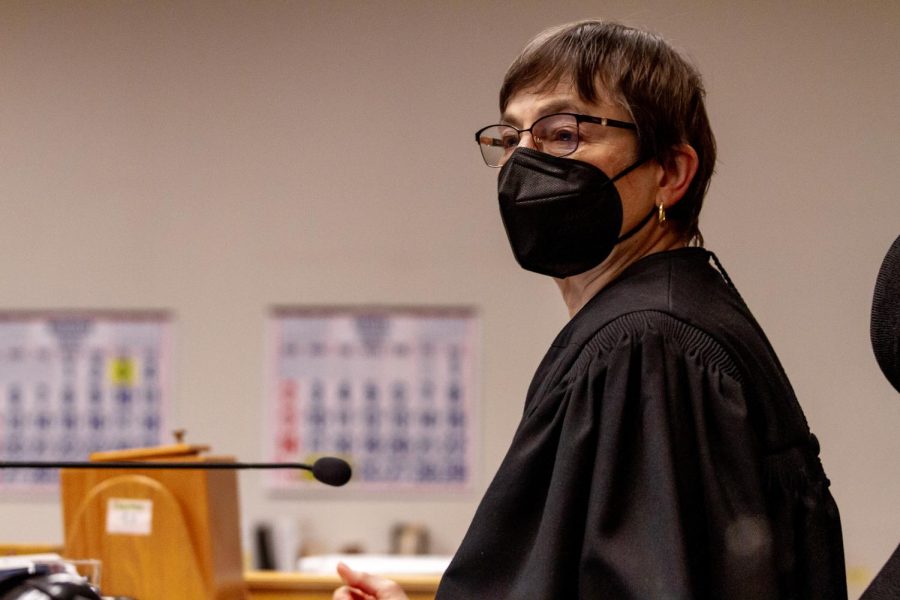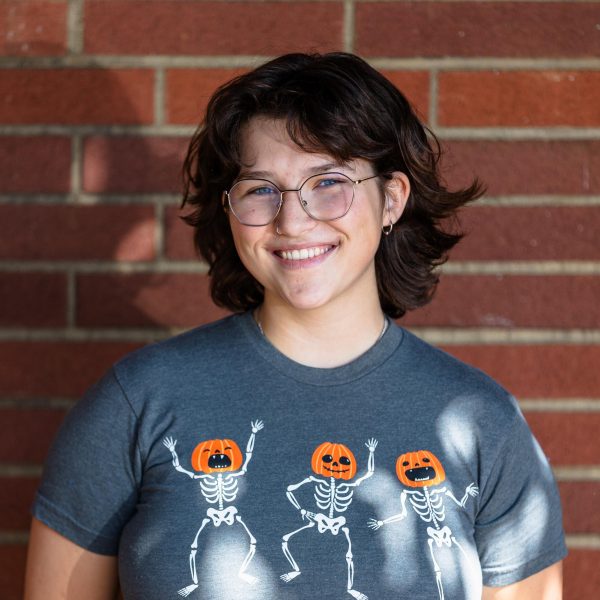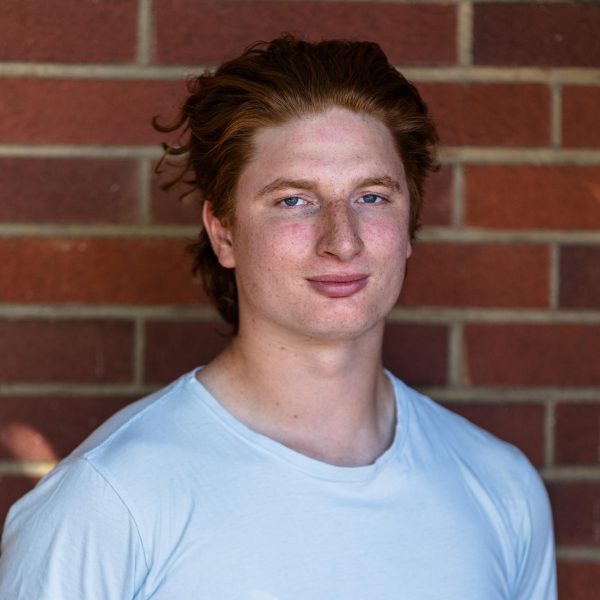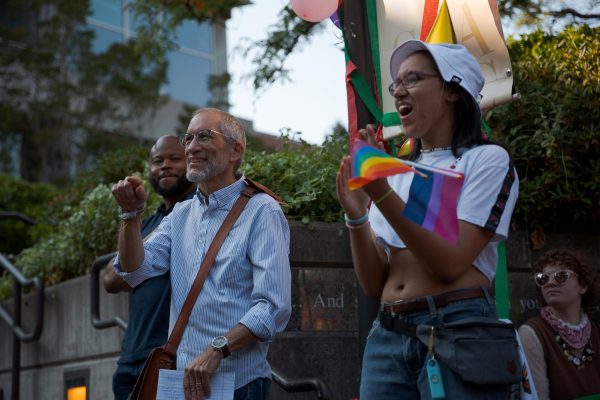
The class of 2026 experienced a protest on their first day of college, and many more in days after. Martin Square burst with rainbows, voices and bright-eyed first years, but one year later, one quarter in, 2023’s freshmen have yet to witness an on-campus demonstration.
The reason for these waning protests goes back to January 2021. A nursing professor named Jeaux Rinedahl sued Seattle Pacific University for discrimination, claiming he was denied a full-time position at the school on the basis of his sexuality. The ensuing controversy pointed a spotlight on SPU’s Statement on Human Sexuality, which requires SPU faculty members to adhere to Biblical standards, including heterosexuality, in their personal lives.
The SPU community mobilized, students, staff and faculty pouring into on-campus protests and calls for change. After months of working with an LGBTQ+ work group, the Board of Trustees announced their decision in May 2022: to leave the employee lifestyle expectations as they were.
The response? An over 40-day-long sit-in outside administrator offices, various on-campus protests, a viral TikTok of the graduating class handing off pride flags to former Interim President Menjares, and even an additional lawsuit filed against SPU.
Now, almost exactly three years later, the lawsuits are over – both settled by plaintiffs. The community grew tired and quiet – protests do not fill Martin Square, and “SPU IS GAY” flyers no longer flutter through every hall.
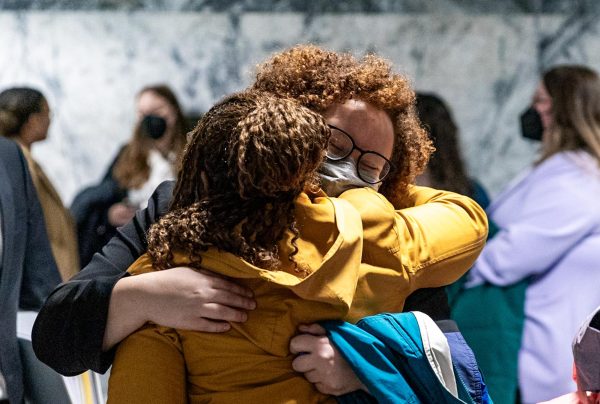
“Protest began with enthusiasm, engagement, all that stuff. You know, when the Rinedahl lawsuit broke out, still in COVID, there was a core of leaders in ASSP, and they were really central in creating some of the initial energy,” said Lynette Bikos, chair professor of clinical psychology. “But over time, I would say the policies have held.”
Not only did the hiring policy hold, it is even more enforced than before. The Board of Trustees now requires every Trustee to uphold it and other policies, including the recent display policy, which prohibits the use of pro-LGBTQ+ posters and flags around campus. SPU is not currently enforcing the display policy.
“If you fight for the marginalized, you’re always on the losing team,” said Kimberly Segall, professor of literature and cultural studies at SPU. “It’s very hard when you put everything into things, and you don’t win that political fight. But there’s also something extraordinary about a campus that continually has that call.”
As director of the social justice and cultural studies major, on-campus and transnational activism are a huge part of Segall’s life. She says every cycle of activism, every ebb and flow of protest, is rooted in and hopeless without a “core.”
“I feel like the core of extraordinary faculty, staff and students want to change things for the greater good and be responsive,” Segall said. “My experience in 23 years is just constantly being surrounded by faculty who choose embrace over exclusion.”
Starting in 2021, nine rounds of the Psychology of Protest survey went out, collecting data at SPU. Bikos, a vocational psychologist interested in how work interacts with life, developed the survey to study the psychology and sustainability of protest. She hoped to analyze what factors contribute to someone choosing to engage in demonstrations and other forms of resistance.
“What are the things they choose to do? How often do they choose to do them? When did they back off?” Bikos asked, scrolling through the hefty survey that tackled everything from perceived organizational support to engagement in various protest activities to the perception of campus climate for LGBTQ+ students.
“What I think I’m finding is that during a protest event, both LGBTQ students and students who are cisgender and heterosexual perceive the campus as being less hospitable to LGBTQ students,” Bikos said. “But after the event, they tend to see it as being more hospitable.”
This trend indicates that students, queer and not, saw a problem that reflected poorly on their school. After protests, however, they largely viewed campus climate more positively despite policies remaining unchanged.
“So, I think the protesters are getting weary,” Bikos said. “I do think there’s a cycle of protest.”
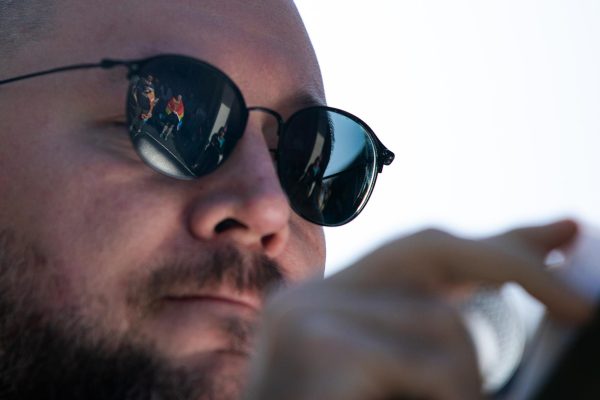
The first round of the survey went out in July 2021, a year and a half ago, and has been released nine times since. A related study, the Voices of Campus Questionnaire 2.0, will be sent by direct email to SPU students and employees this January. The purpose is to gain an understanding of the perspectives and well-being of campus. Bikos encourages all recipients to complete the IRB-approved survey.
Rae Perez and Chloe Guillot, former plaintiffs in the Guillot V. Whitehead case and current and former students at SPU, sent out an email to faculty and staff members on Jan. 4, the subject line reading, “Have we lost?” They argue that the community ought to keep the ball of protest rolling.
“It may sometimes feel like hope is lost, but we are less than two years removed from the biggest push against queerphobic policies that this university has ever experienced. Unfortunately, like many schools in similar positions, SPU has been content to wait for the loudest voices to graduate so they can return everyone to complacency,” reads the email.
Faculty’s energy may be running low; with the announcement of widespread budget cuts and 40% faculty cuts in spring of 2023, already full plates are overflowing. Remaining faculty are left with even more work – restructuring and stabilizing their academic areas for the coming storm.
“Right now, we have so much lament. We either have lost or are losing 40% of our friends, our colleagues. So we’re picking up that work that was done by people that have left,” Bikos said. “We’re trying to figure out ways forward.”
Still, as faculty move on and activists graduate, strains of protest remain in the air.
“I have been so amazed by the creative ways that our faculty have been engaged in protest,” Bikos said. “Matt Bellinger has been maintaining Affirm, and that’s totally in his skill set.”
Bellinger, a communication professor soon to depart SPU, “scours the news for articles” to be used on Affirm. The site provides a clear timeline of events at SPU with links to news coverage and accessible legal documents, with consistent posts and accessible language.
Jan. 3’s entry on Affirm’s site reads, “Nothing to share for now; it’s been a quiet couple of weeks. Check back next week for another update!”
“I think the chapter is ending,” Bikos said. “I hope the book isn’t ending.”
Bellinger will continue to maintain the site even after he leaves SPU.
Faculty, staff and students are urged by Perez and Guillot to continue pressuring the administration for change.
“Just because we did not get the result we wanted in 2022 does not mean that we can give up because there are queer students, professors, and staff who need a safe place at SPU, and there will be as long as it stands,” the email reads.
Bikos reflected on a tradition, started in 2021, of hanging up pride-themed Christmas lights up at Christmas time, that “magically appeared in Marston Watson and other places.”
This year, the gay lights did not make it up. Whether this era of reform in SPU’s history is drawing to a close – or just drawing a breath – is yet to be seen.
“You all have continued to show up for LGBTQIA+ students at SPU for years. This is your invitation to continue that work, and to do so with fervor, because really, what more have we really got to lose here?” the email finishes.
The protest will continue, fluxing through what Segall dubs “waves,” consistent laps in an “ocean of compassion.”
“That ocean doesn’t go away and isn’t fickle,” Segall said. “It is deep, and it’s profound, and in its best ways, should hold us together.”
















































































